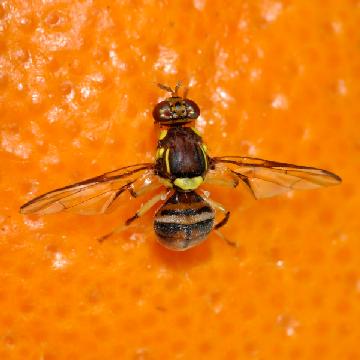Projecten
TEPHRISURV
Developing effective methods for the surveillance of non-European Tephritids on Belgian territory
In order to comply with EU ordination 2016/2031 regarding pest organisms of plants and EU ordination 2019/1702 on priority pest organisms, the Belgian Government organized a call for parties interested in developing a pest risk analysis and surveying program for non-European fruit fly pests, and in particular for priority pest fruit flies (i.e. Anastrepha ludens, Bactrocera dorsalis, Bactrocera zonata and Rhagoletis pomonella), specifically for Belgium. The main research questions that need to be addressed are:
• Are all non-European fruit flies mentioned on the list of EU quarantine organisms, capable of becoming established in Belgium?
• Which are the most appropriate methods for a fast and adequate surveillance of non-European fruit flies?
• What are the optimal conditions regarding seasonality, duration and location to deploy such a surveillance program in Belgium, taking into consideration the biology of the fruit flies and potential points of entry, and what are the minimal requirements for a reliable surveillance program?
After selection and evaluation, the Belgian Government assigned the task for the development of such a surveillance program to the Flanders Institute for Agricultural and Fisheries Research (ILVO) in collaboration with the Royal Museum for Central Africa (a partner in the FF-IPM consortium). The project, called TEPHRISURV, will start on April 1st 2021 and will run for two years.
Given the specified research questions, there is a clear link with a number of the activities and tools that are being developed within the FF-IPM project. Two of the target fruit fly species are listed on the priority pest species list. As such development of tools, strategies and services to enhance the management of phytosanitary risks of fruit fly invasions, including fast and accurate detection and identification tools, could be of direct relevance to the development of a surveillance program for Belgium. The role of the Royal Museum for Central Africa, being involved in both activities, will be pivotal in liaising between the initiative at European and at national (Belgian) level.
Hoofdonderzoeker:
Datum:
2021 2023Medewerkers:
- Marc De Meyer
- Annelies Kayenbergh
Externe partners:
Johan Witters (ILVO)Wannes Dermauw (ILVO)
